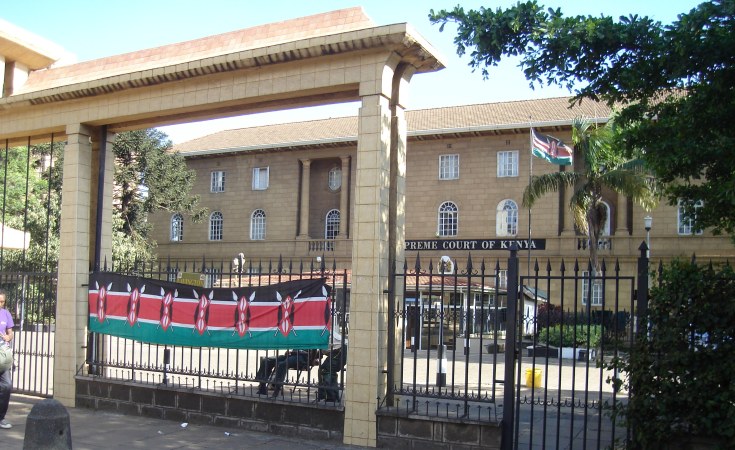Kenya's death penalty disproportionately affects people from low-income households, many of whom lack proper legal representation. Those surveyed in a recent study also accused the judiciary of corruption.
Peter Ouko from Nairobi was sentenced to death in 2008 for murder, a crime he said he didn't commit.
Having spent 18 years in prison, Ouko was lucky to receive a presidential pardon in 2016, a gesture the president makes annually to decongest Kenya's prisons.
Now out of jail, he told DW that many innocent Kenyans are languishing in prison, just like he suffered some years ago.
"We had a broken-down judicial system," Ouko said, adding that some judgments were not even written by the judges who read them in court. "Judgments were written somewhere else; that is why we have so many people who don't deserve to be behind bars wallowing there in pity."
According to Ouko, most of those being wrongly jailed are poor. This has been confirmed by a recent report by Kenyan rights groups led by the Kenya National Commission on Human Rights.
The report showed that over 80% of those sentenced to death were from low-income backgrounds and families without access to proper legal representation.
Corrupt judges and magistrates
Corruption in the judicial system also means many poor Kenyans have been denied access to justice.
The most recent Afrobarometer survey, conducted in 2021, revealed that many Kenyans believe some of the country's judges and magistrates were corrupt.
Even though a majority of Kenyans trust the courts, many of them said in the survey that most or all judges and magistrates are involved in corruption.
The share of those who approve of this opinion increased between the years 2016 and 2019, the Afrobarometer findings showed.
In that report, trust in the courts was weaker among better-educated citizens and urban residents.
These findings highlighted the challenges that the judiciary in Kenya has been confronting.
Harsher punishment for minor offenders
In the 1980s and '90s, when Kenya's judicial system was plagued by graft, many people were detained without trial.
Ouko served time with many such prisoners, and said some had committed minor offenses.
"I left a guy there, who was sentenced to death for stealing a loaf of bread, since 1995, you know I read such judgments and I am like, OK, that is the law we had, one loaf of bread," he said.
Ouko was surprised high-profile crimes weren't the focus of the judicial system; instead, they focused on minor thefts.
"Forget about the 25 billion Kshs ($200 million/€186 million) we are making noise about, one loaf of bread and the guy has been in Kamiti [prison] up to today, since 1996," he said.
Ouko was referring to reports of stolen public funds in several scandals by high-profile politicians and government officials.
In some instances, these recognized persons were never held accountable.
Last November, Kenya's top court dropped a $60 million corruption case against Deputy President Rigathi Gachagua.
Letting the powerful off the hook
Earlier in October, Director of Public Prosecutions Noordin Haji withdrew a string of graft cases against allies of President William Ruto just as he took office. Most of those allies now sit in his Cabinet.
Many other influential Kenyans have been spared jail for out-of-court settlements, or had their cases dropped completely for crimes that would land an ordinary Kenyan in prison for life.
Rights activist Mercy Mutunga told DW that Kenya's judicial and reformation process needs to change. She is unhappy with several inequalities in death sentencing on the country's books.
"The poor are already predisposed to injustice because ignorance is no defense in law, first of all you are not even accessible to the formal education, so even understanding the law is very hard," she said.
According to Mutunga, "most of the people who are affected by the death sentence or are predisposed to be affected by the death sentence come from people who are below the poverty line in this country. That is why we need reforms to help."
The Kenya National Commission on Human Rights is now seeking the abolition of the death penalty.
The commission said although the death penalty is still legal, it is ineffective at fighting crime and disproportionately imprisons the poor.
It has been 35 years since the last person on death row in Kenya was executed.
Edited by: Chrispin Mwakideu


